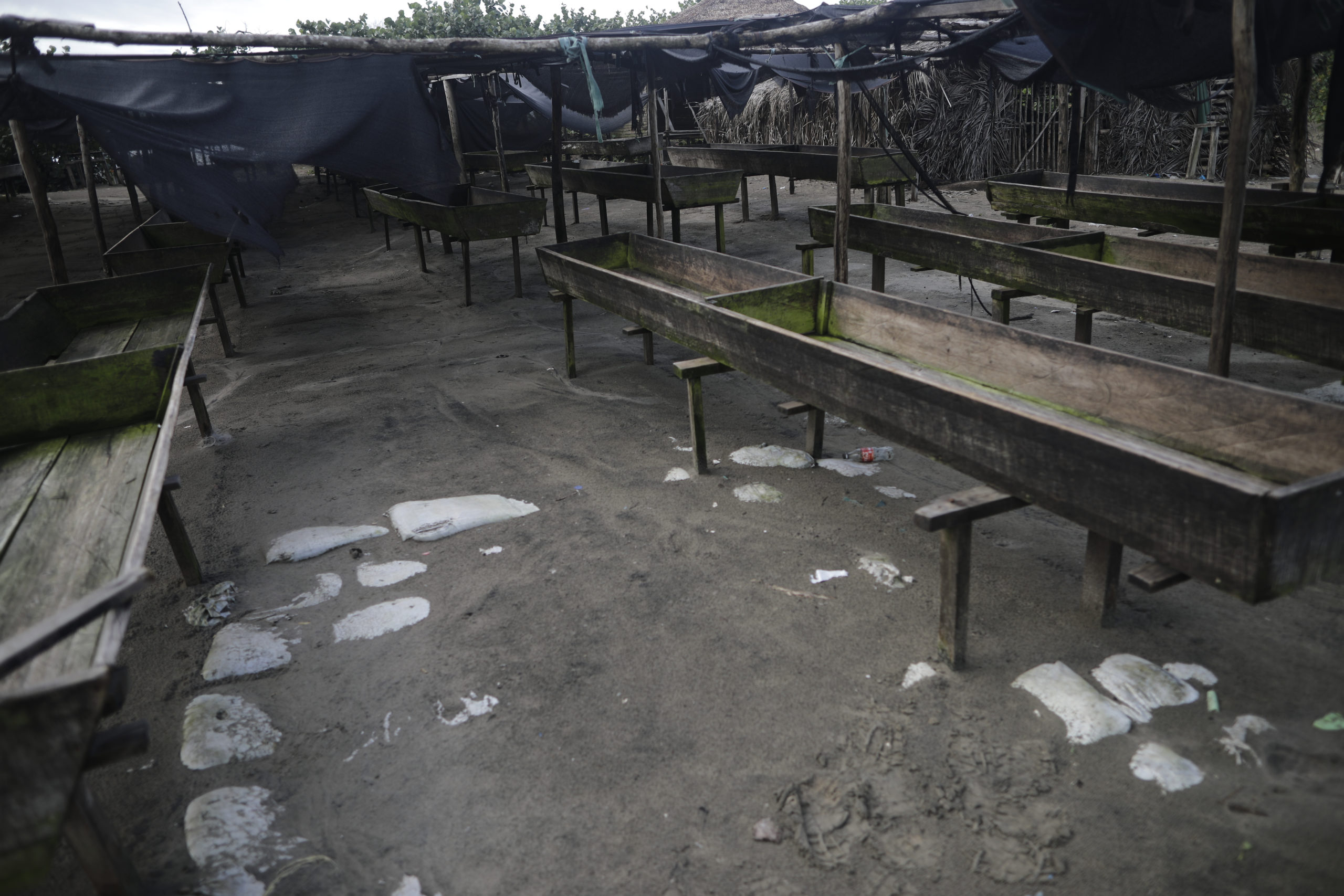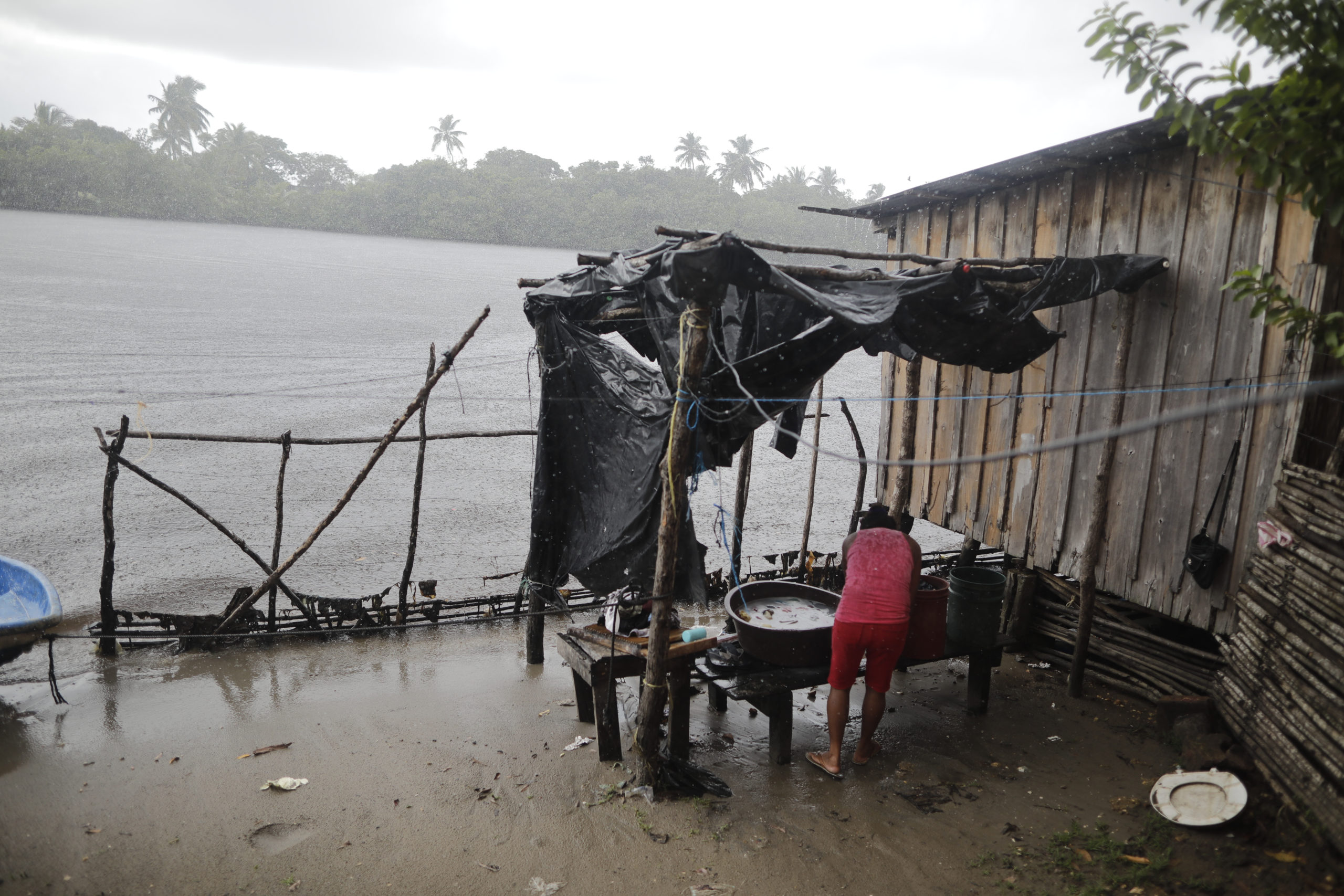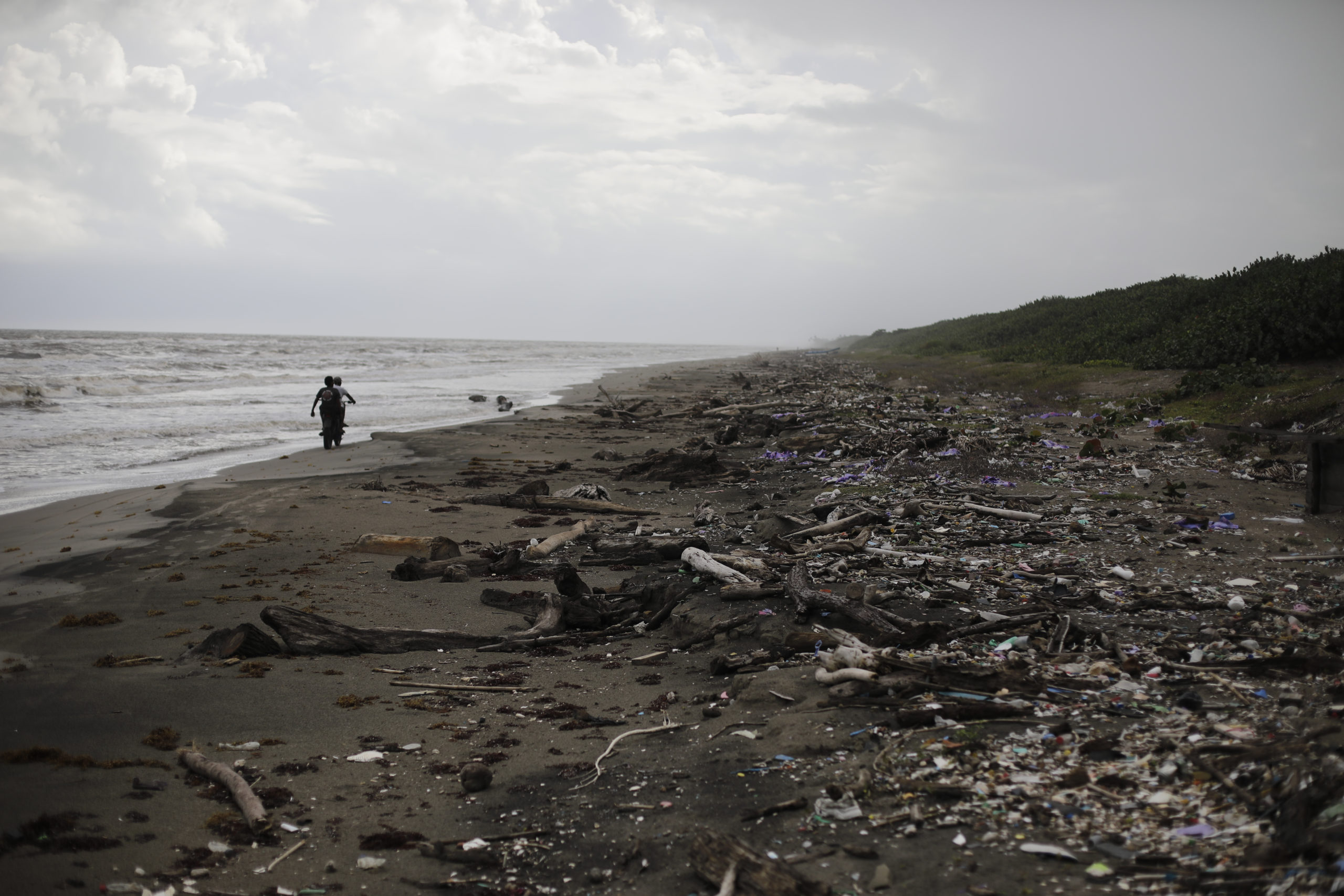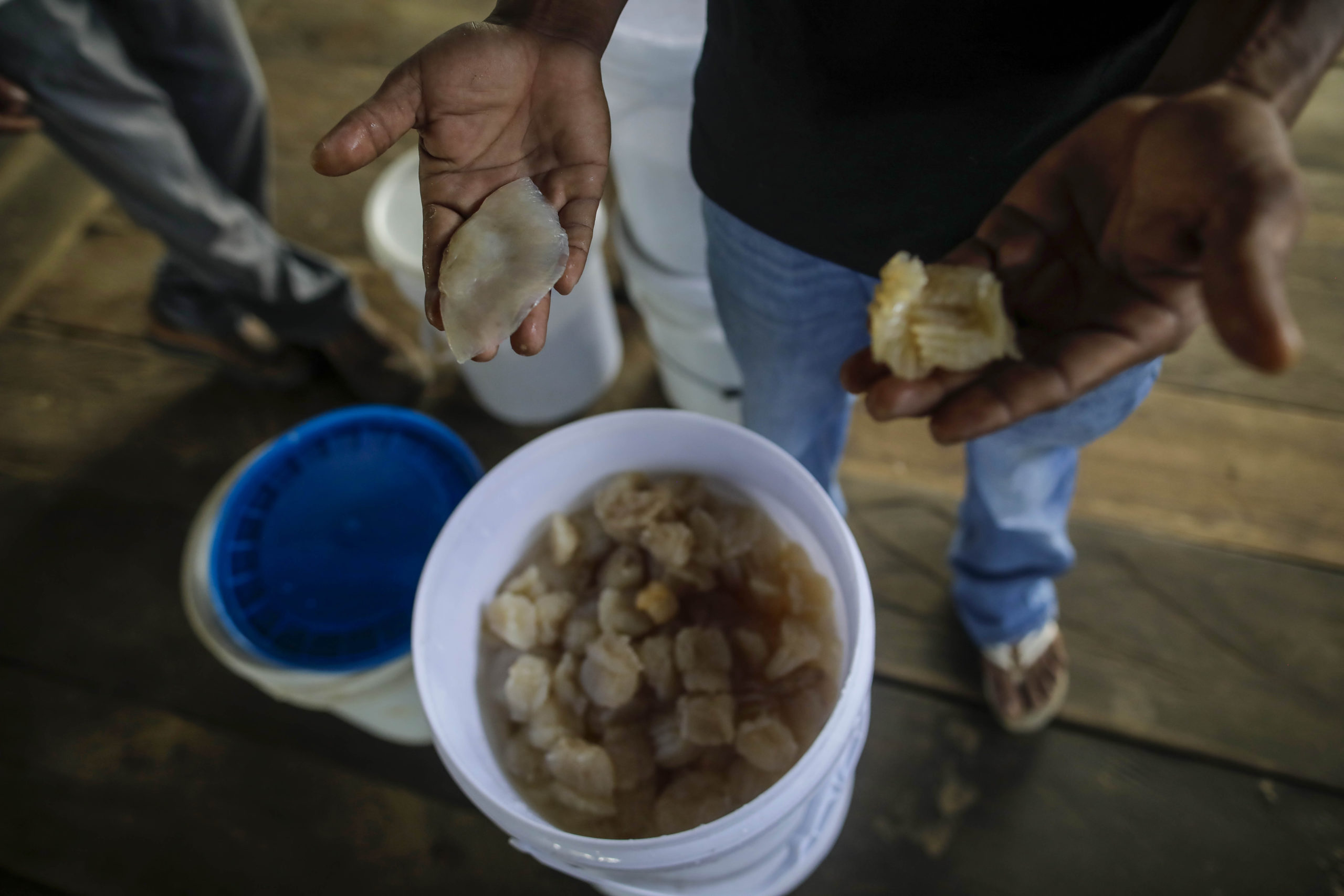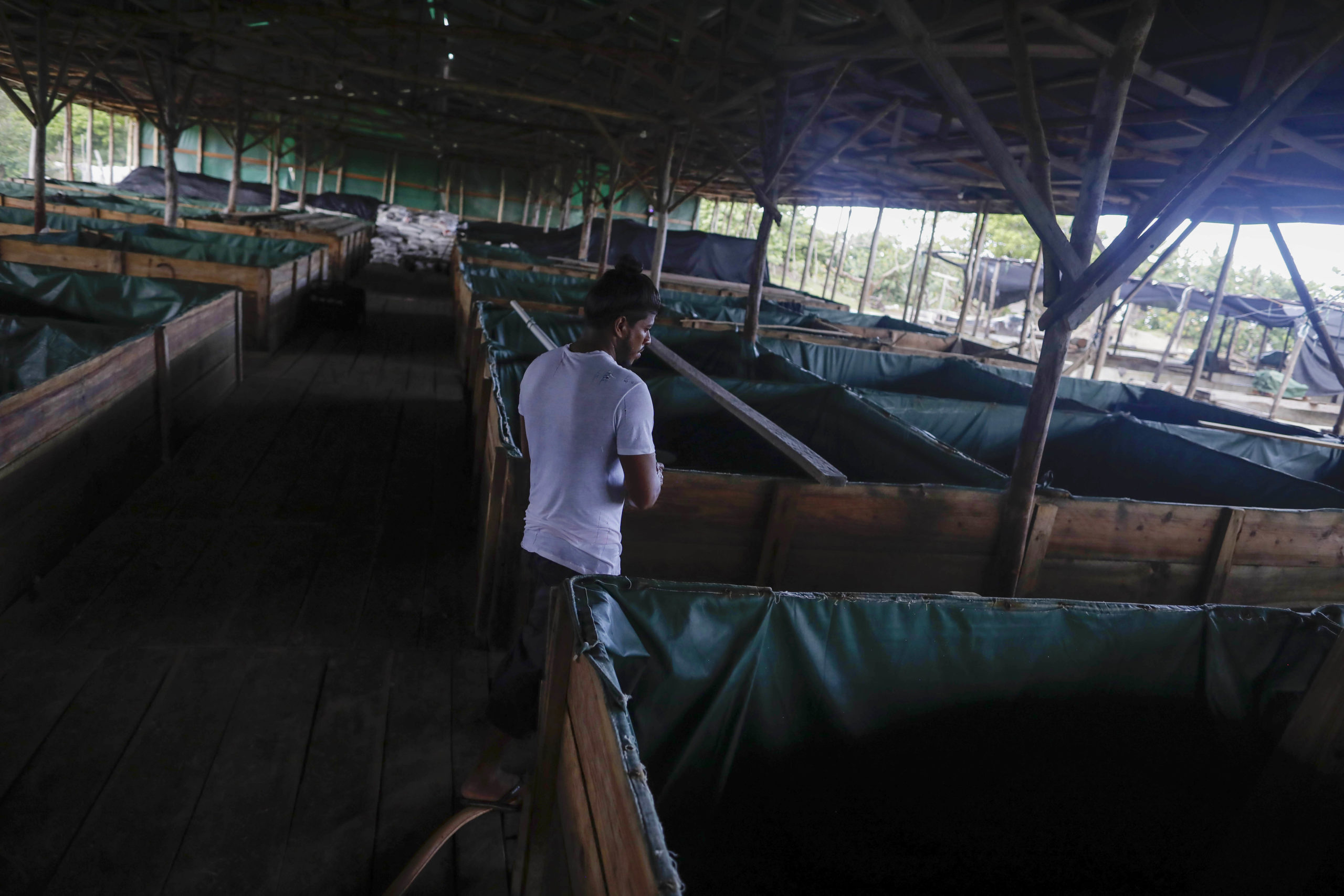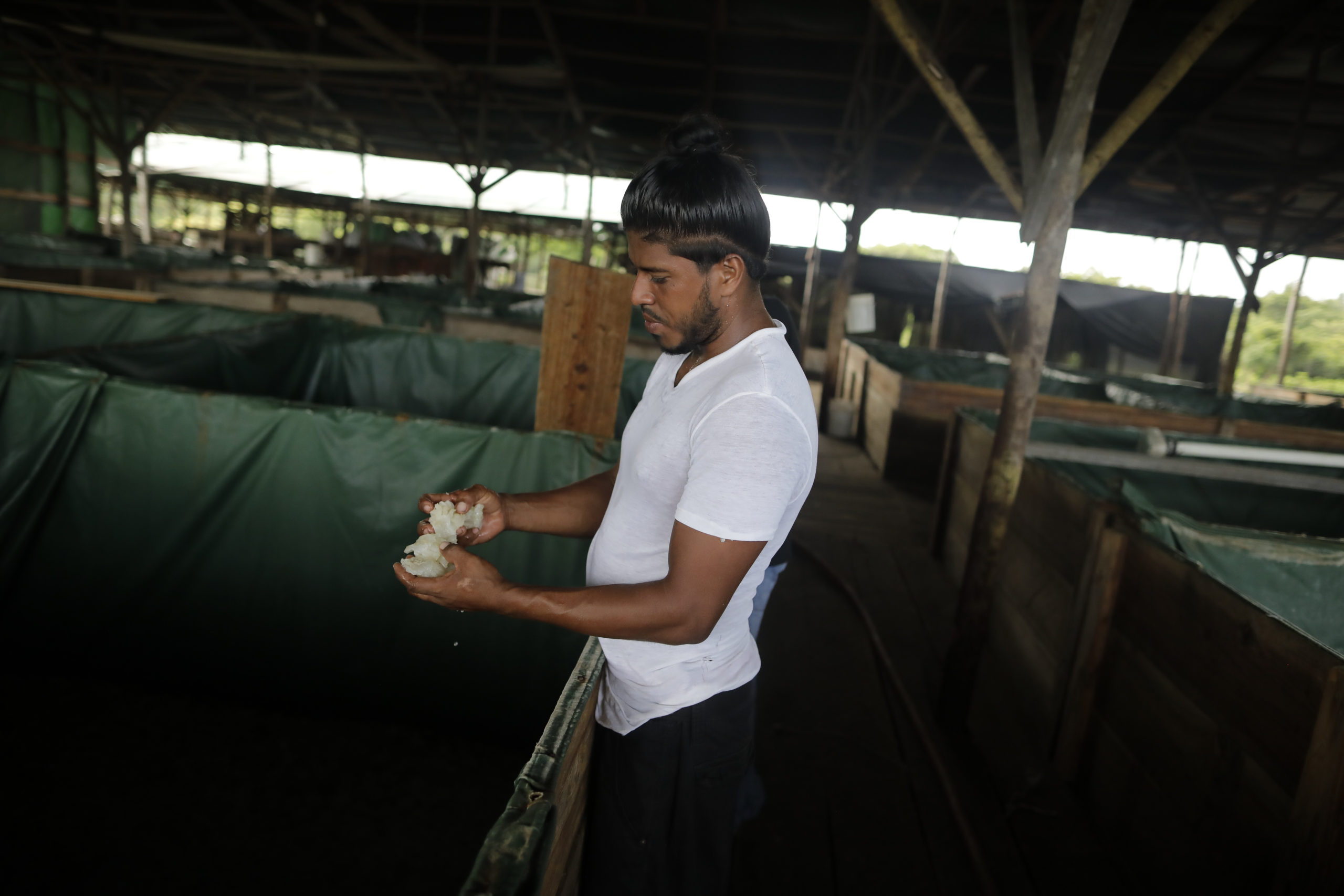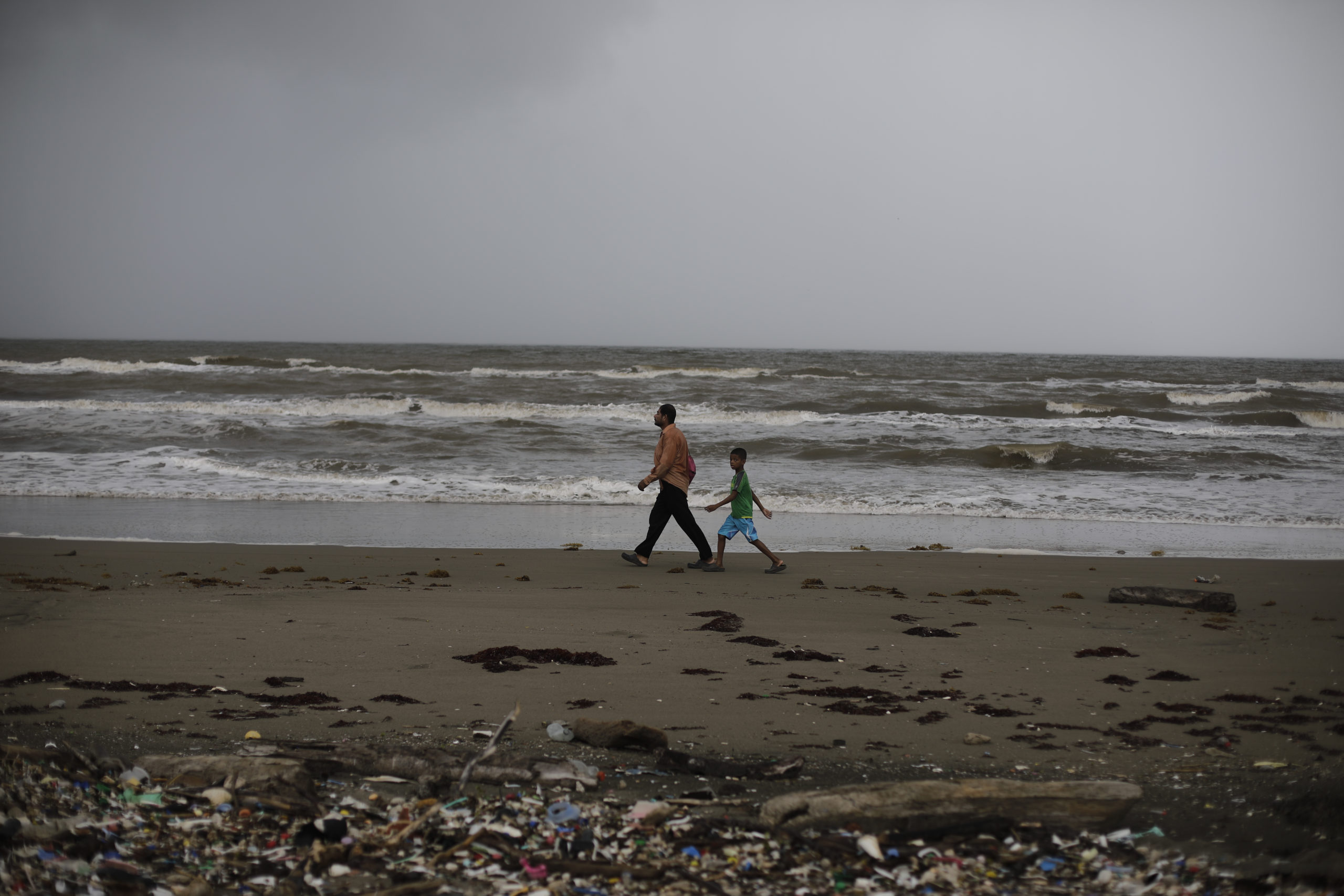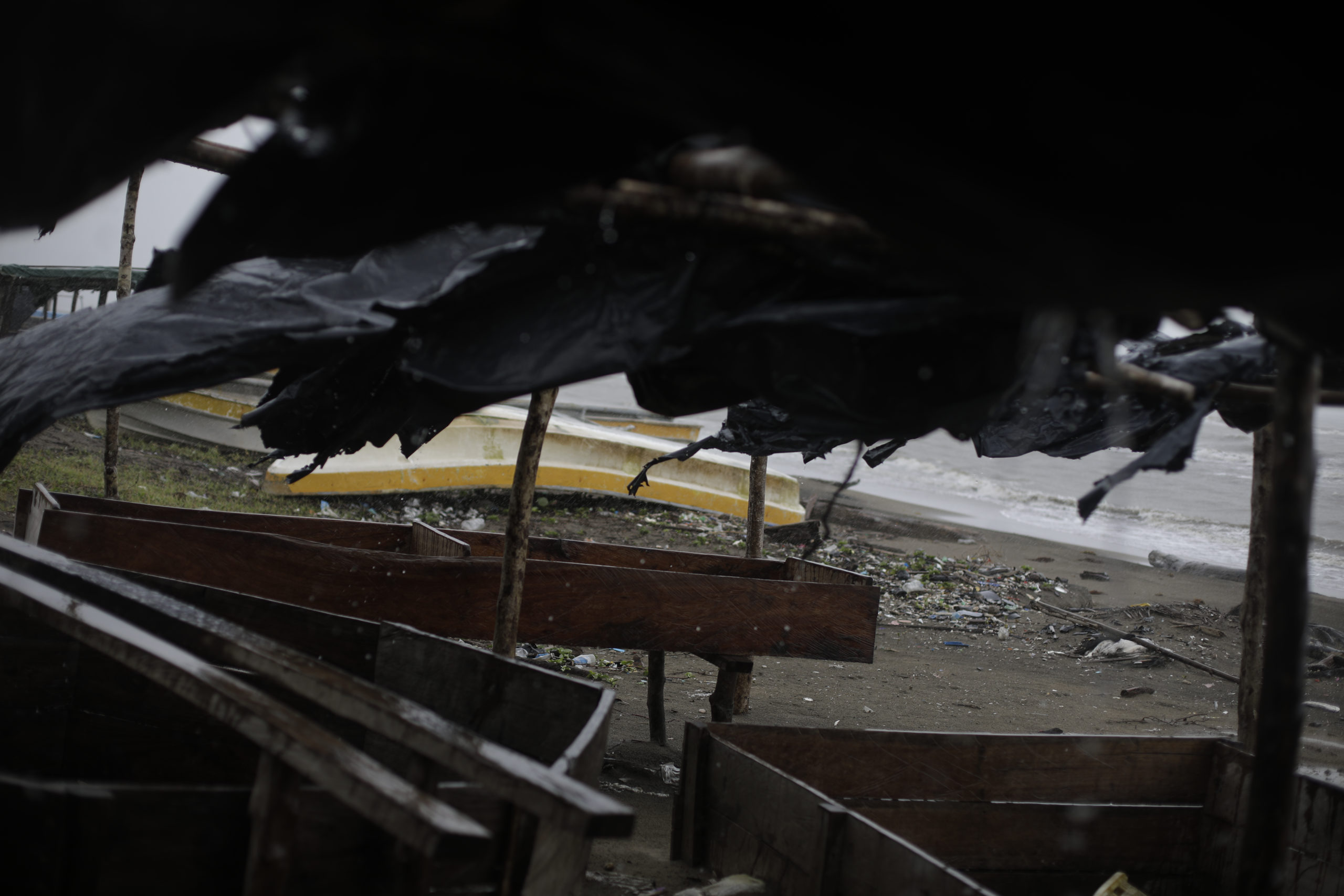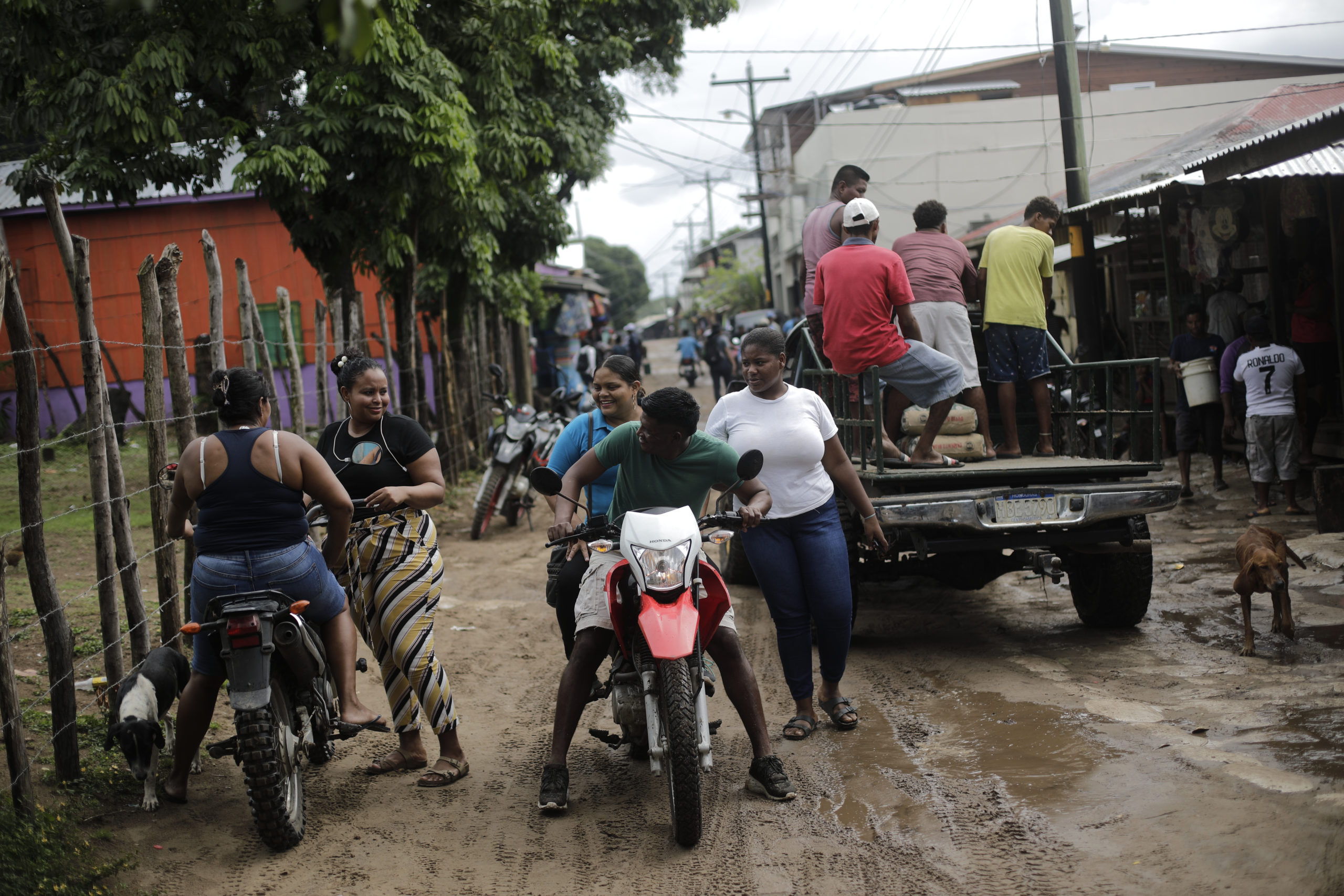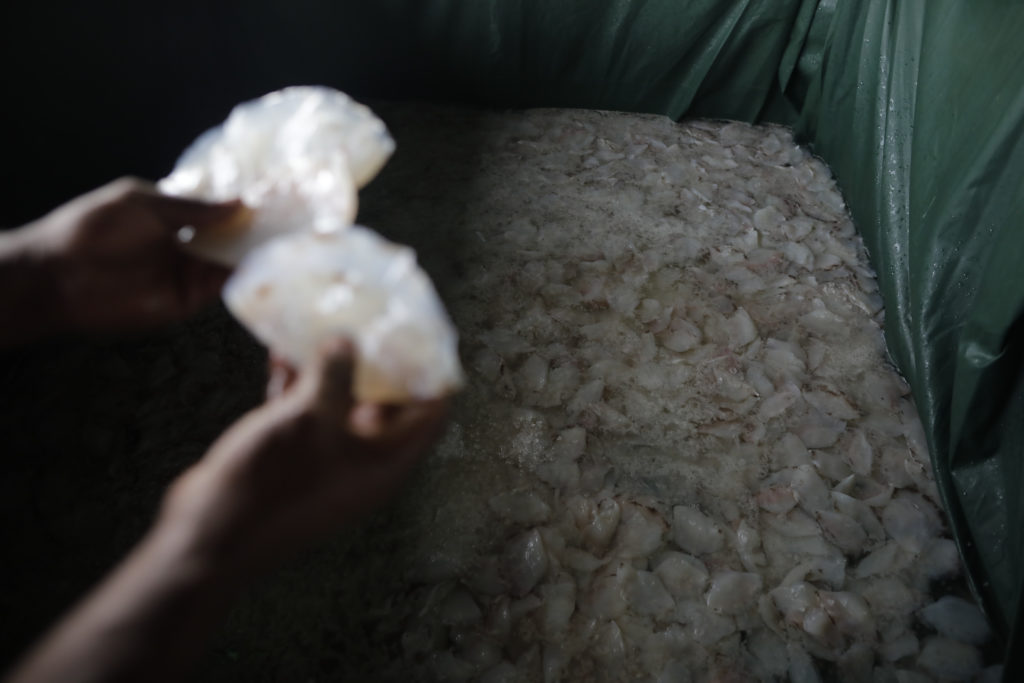Photography and text: Jorge Cabrera
Facing the Caribbean Sea, along kilometers of a white beach in the Honduran Moskitia, more than 160 shacks that a few months ago functioned as jellyfish fishing workstations are abandoned. All of them are made of pieces of wood and plastic roofs, damaged by the strong windstorms and constant rains that hit the small community of Kaukira, in the department of Gracias a Dios.
Kaukira stretches between the Caratasca lagoon and the sea, serving as a humble dwelling for Miskito fishermen. While many struggle, some fishermen have managed to engage in the fishing related business. Sometimes Kaukira is a miraculous place, where bales of cocaine arrive from the sea. Much has been said about this, but it’s not widely known that the residents also rely on jellyfish fishing for their livelihood. Recently, a company—believed by some locals to be Chinese—intends to take over the ‘jellyfish monopoly”.
In recent years, the arrival of COVID-19 and the impact of climate change have had repercussions on the jellyfish business, since a mandatory ban was decreed for the fishing of “cannonball” jellyfish, abundant in that area, and affecting dozens of families that barely make ends meet through fishing alone.
Abandoned stations were once manned by locals, predominantly Miskito women who processed the jellyfish brought in by the fishermen. However, as of early 2023, these stations stand desolate and surrounded by garbage due to their closure. Kauma, a Miskito company sponsored by the United Nations Development Program (UNDP) and Action Aid, with the goal of promoting the export of jellyfish and create job opportunities in the region, is among the projects significantly impacted.
After a little more than three months, fishermen are unable to embark in search of the highly prized jellyfish. The invertebrates do not show up in the water mirror where they can be captured, due to the changes in climate that have hit the area. This is the reason why many Miskito families must reinvent themselves in order to find new ways to secure economic income.
“Natural phenomena have affected us since September 2023. The constant rains make the water very fresh, and that causes the jellyfish to hide, or in this case to submerge”, mentioned Edman Randy, marine biologist of Kaukira.
Beatriz Witso, 46, is a single mother of five children. Her job at the station was to separate the pineapple and bell from the invertebrate, and she earned 20 lempiras for each bucket she made during the entire workday, which could last from 12 to 24 hours, depending on the season. The bad weather and the scarcity of the jellyfish forced Beatriz to travel to Puerto Lempira, where she was given work for days alongside the tree cutters; this time, the work consisted of preparing food for the loggers during the days they were submerged in the lush forests of the Moskitia, receiving a payment of 250 lempiras per day.
“It is worrying, I am leaving along with many from the community because there is no jellyfish fishing. I would like to stay knowing that I have a job as a fish catcher and being close to my children, even if it’s earning little, but still in my home. Necessity makes me search for money to bring food to my home”, lamented Witson.
For Duval Cahill Haylock, president of Kauma, it is not only climate change that is affecting those who worked and survived thanks to jellyfish fishing. According to Haylock, the Payaku company intends to have a monopoly on jellyfish. Payaku is a company whose name is linked to Jony Gilberto Varela Álvarez, a municipal councilor in Puerto Lempira from the Libertad y Refundación Party, according to government supplier portals, where Payaku appears as a bidder in several procurement processes in the health sector. Varela is also the administrator of the hospital in Puerto Lempira. The company is currently managed by Kelvin Lee.
Haylock stated, “Over the past decade, the Chinese businessmen have solely purchased for direct export to Asian countries. However, four years ago, the Payaku station was established, handling the entire process from fishing to packaging. Due to this development, the 101 members of Kauma are constructing their own facilities to boost income. They are optimistic about finding a reliable customer, even though the international price for the sale of jellyfish remains unknown.”
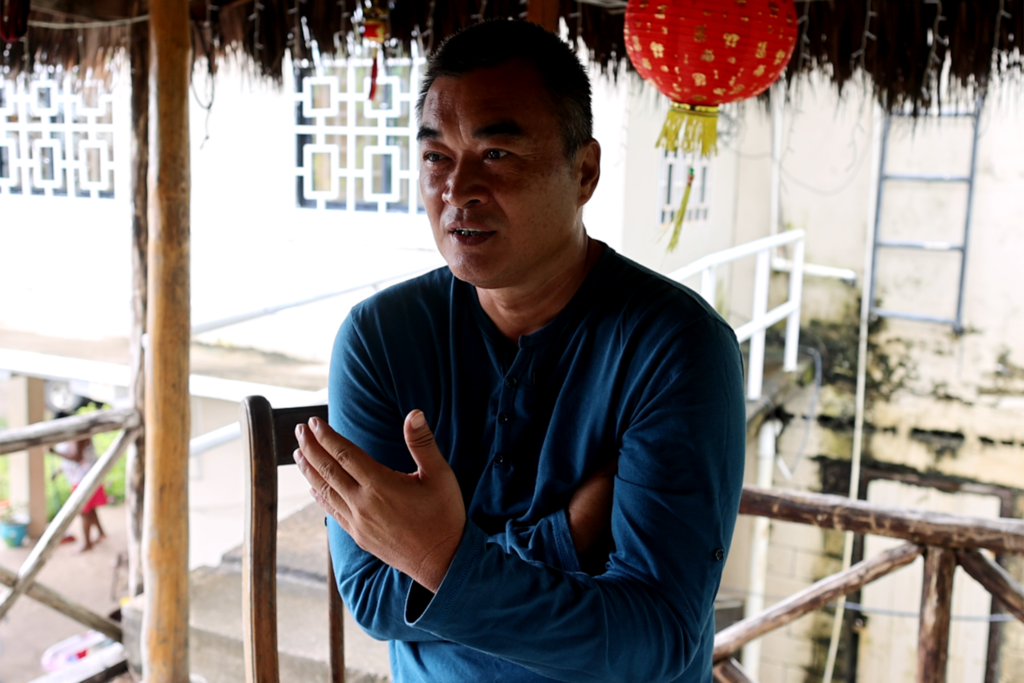
In March 2023, the President of Honduras, Xiomara Castro, announced via her social networks that she had directed Foreign Minister Eduardo Enrique Reina to manage the opening of relations with the People’s Republic of China.
The rapprochements between the governments of Honduras and China are well regarded by the Miskito population, and even more so by Kelvin Lee, the representative of Payaku, since the company exports some 44,000 pounds of jellyfish every six months. Lee considers that the General Directorate of Fisheries and Aquaculture (Digepesca) should refrain from closing in on the jellyfish, since “it comes out when it is ready to be caught”.
“If we can ship jellyfish or sea cucumbers to China without taxes, it would benefit the people. In that case, we could raise prices for the fishermen,” Lee explained, adding that the investment in creating the Payaku single station was a little more than three million lempiras; in his opinion, this was the easiest and cheapest.
“The expenses are higher when you have to fuel the boats, the machinery, the payment of export shipping and permanent employees,” said the representative, although he did not specify the amount of those expenses.
The jellyfish fishing management measure in the Honduran Caribbean approved in 2018 by the Secretariat of Agriculture and Livestock (SAG), in agreement n.° 185-2018. determines a catch quota of 6,550,256.7 pounds, equivalent to 174,673.5 buckets with a capacity of 37.5 pounds each, in brine; an amount exceeded by the Payaku company in seasons with heavy fishing, according to Lee.
According to biologist Edman Randy, during favorable fishing conditions, each boat can fill a minimum of 60 baskets with jellyfish, worth 50 lempiras each, which represents a weekly profit of between 20,000 and 30,000 lempiras.
Gracias a Dios is the poorest, most vulnerable and difficult to access department of Honduras. In recent decades, the Miskito population has fought daily for the recovery of their territories, facing constant attempts by multinationals to exploit the waters in search of oil, circumstances aggravated by drug trafficking.
“Personally I am against them coming to drill for oil. Imagine a spill, we would be left in misery. Everyone here lives solely from fishing, and not only La Moskitia would be affected, we are talking about the entire Honduran coast,” said Haylock.
On the Caribbean beach where Payaku’s single jellyfish station is located, 300 to 350 people work during the high season, including boatmen, helpers, caretakers, and cutters. However, due to bad weather, the company currently has only ten permanent employees, who receive the few jellyfish that the independent fishermen find, in addition to taking care of the facilities.
We attempted to speak with alderman Jony Varela, under whose jurisdiction Payaku has been operating in; however, he did not respond to our calls.
